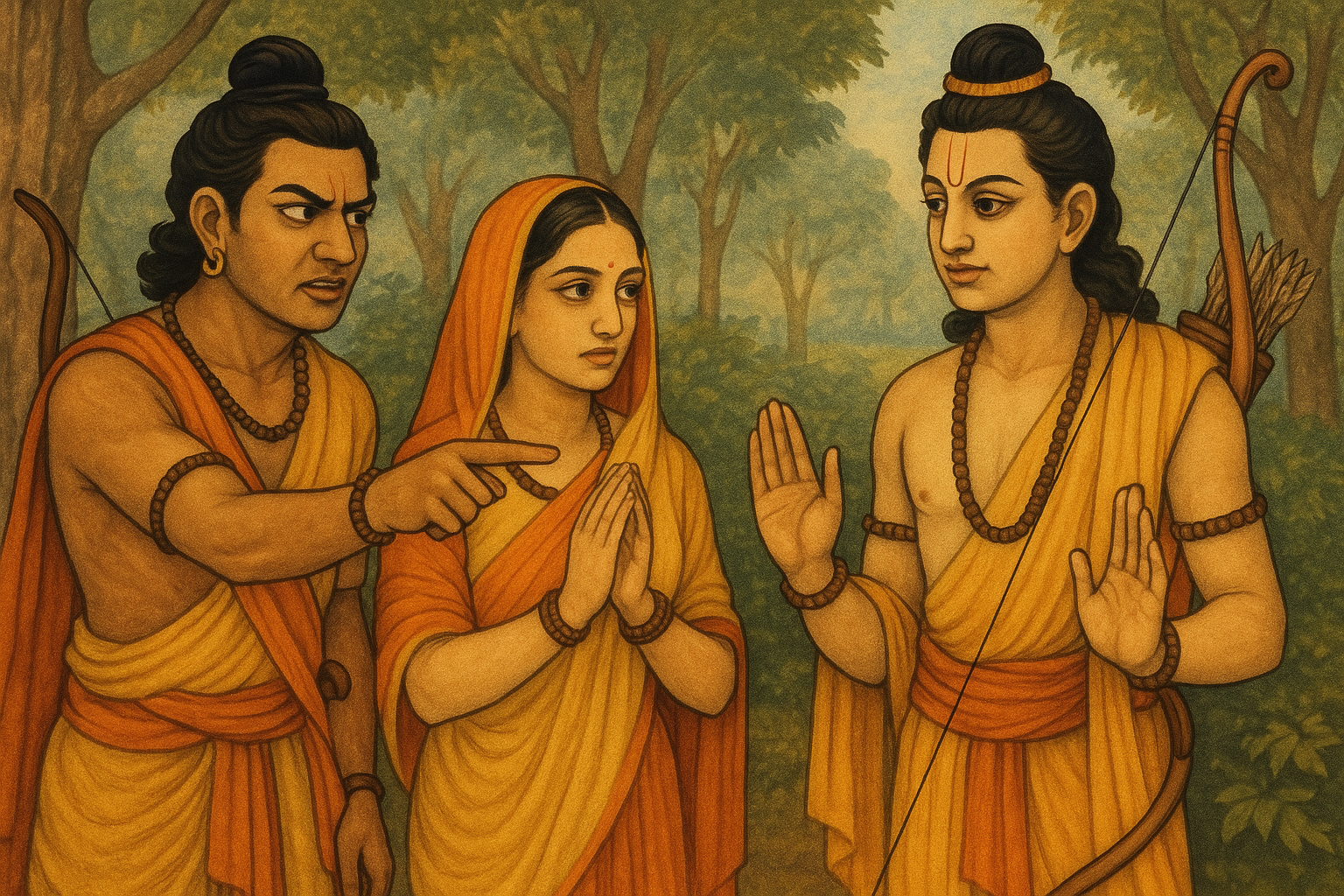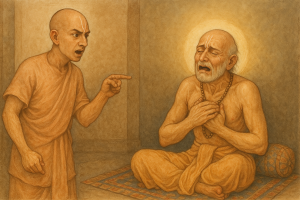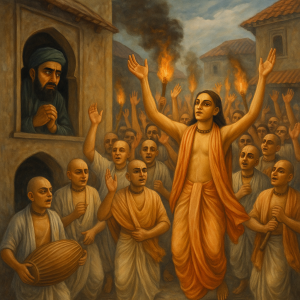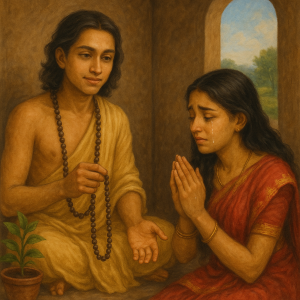The First Meeting: An Unseen Offense
Sugrīva, the king of the Vanaras, became friends with Lord Rāma. When they first met, Sugrīva respectfully offered a seat to Rāma but did not offer a seat to Lakṣmaṇa, Rāma’s devoted servant.
Sugrīva thought: since Lakṣmaṇa was Rāma’s servant, he need not be honored with a seat.
Though Rāma noticed this slight disrespect, He remained silent. However, Hanumān acted quickly and respectfully—breaking a tree branch and offering it as a seat for Lakṣmaṇa. Rāma was pleased by Hanumān’s devotion and timely service.
The Battle Against Vāli: A Lesson in Humility
When Sugrīva went to fight his brother Vāli, Rāma did not kill Vāli immediately, even though he was capable. Rāma explained he could not easily distinguish between the two brothers, as they looked alike.
To help, Lakṣmaṇa placed a garland around Sugrīva’s neck. This humble act required Sugrīva to bow before Lakṣmaṇa—a man he had earlier failed to respect properly.
The Teachings
- This act made Sugrīva humble himself, teaching him the importance of respect towards devotees and those devoted to the Lord.
- The story highlights that the Lord can excuse a person for offenses committed toward Him, but He does not excuse offenses against His devotees.
- Disrespecting devotees is a serious offense (vaiṣṇava aparādha).
- A culture of respect towards devotees must be cultivated—even amid disagreements or social differences.
Lessons to Remember
- True humility is the foundation of spiritual growth.
- Respect toward devotees, irrespective of status, is essential.
- God’s mercy depends on how we treat His devotees.
- Even small offenses can hinder spiritual progress and must be corrected.



